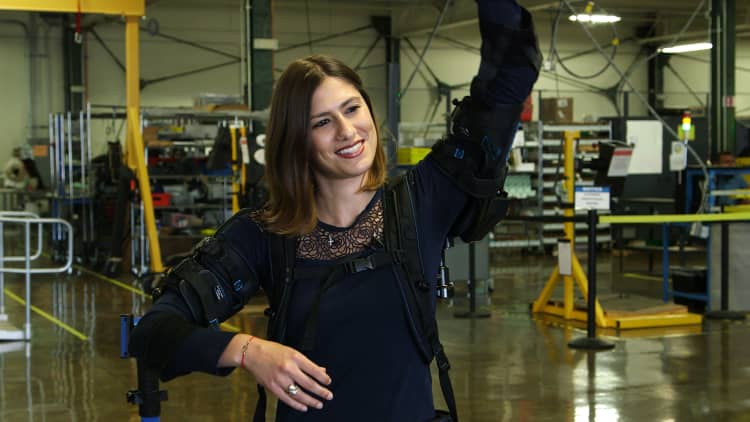When pharma giant Pfizer announced in January it planned to shut down early- and mid-stage neuroscience drug development, it was another blow to a field already in a defensive crouch.
Diseases of the central nervous system — from Alzheimer's to Parkinson's to Lou Gehrig's disease — have been incredibly difficult for drug developers to crack, and Pfizer's retreat appeared that it would siphon more much-needed money and attention from the area.
But, as it turns out, Pfizer's not walking away completely. It's teamed with investment firm Bain Capital to create a new company composed of its neuroscience assets and funded with $350 million from Bain.
Its name: Cerevel Therapeutics, derived from the phrase "cerebral revelation," explained Bain Capital Life Sciences Managing Director Adam Koppel, in an interview.
"Cerebral comes from cerebellum, the brain," he explained. "Revelation, to unlock the mysteries and secrets of the brain."
The new company will get about 10 programs in neuroscience and neuropsychiatry from Pfizer, including three already in clinical trials. Pfizer will add two directors: Doug Giordano, its senior vice president of worldwide business development, and Morris Birnbaum, chief scientific officer of internal medicine. Koppel and Chris Gordon, managing director at Bain Capital Private Equity, will also join the board. Pfizer will own 25 percent of the Boston-area company.
Its lead programs include a medicine for the symptoms of Parkinson's disease that is likely to enter late-stage clinical testing next year, and one for epilepsy that is ready to start mid-stage studies. Other compounds target Alzheimer's disease, schizophrenia and addiction.
The idea to found a company around a shelved asset from a bigger pharma company isn't new; it's the model of biotech companies from Puma Biotechnology to Esperion to Axovant (in fact, both Puma's and Esperion's key drugs were licensed from Pfizer; Axovant's was an Alzheimer's medicine from GlaxoSmithKline that ended in rather spectacular failure).
What's different is that Pfizer remains more involved with these assets, Bain's Gordon said.
"Years ago we started having dialogues with various pharmaceutical companies about partnerships to fund their R&D pipelines," he said in an interview. "For a long time they struggled to get off the ground, because a lot of times it was tough to find ways for the financial investor and the pharmaceutical company to both get what they wanted": a good financial return for the former, and "optionality" on their pipelines for the latter.
It's a model Pfizer appears increasingly to be exploring: Last fall, Pfizer spun out Springworks Therapeutics, along with rights to four of its programs. Bain was among investors supplying the $103 million in initial funding.
In April, Pfizer said it agreed to transfer some of its cancer immunotherapy assets to a new company called Allogene, of which it would own 25 percent. Allogene sold shares in an initial public offering earlier this month that valued the company at more than $2 billion.
When Pfizer shut down its early neuroscience work, it cited "continual setbacks" faced by its internal programs.
"We had to come to terms with the fact that our research efforts were simply not making the progress necessary to translate into truly transformational therapies for patients," Mikael Dolsten, the company's head of research, said in a statement.
And neuroscience drug development, particularly in Alzheimer's, has been hard. But Koppel argues the area has seen more success than it is given credit for.
"There have been a lot of positive advances and important drugs in late-stage development or approved in neuroscience and neuropsychiatry," Koppel said. "Maybe because of the profound failures in Alzheimer's, there may be a more dramatic overhang on other areas."
He pointed to progress in migraine, where three new drugs have just been approved; treatment-resistant depression, movement disorders, rare diseases affecting the nervous system and diseases such as spinal muscular atrophy and Duchenne muscular dystrophy, where significant advancements have been made in gene therapy and other approaches.
The $350 million from Bain to start Cerevel may be just the beginning; the firm indicated it has the ability to provide more funding. Bain's other health-care investments span from contract research giant Quintiles, now called IQVIA, to biotech companies Solid Biosciences and Dicerna Pharmaceuticals. Koppel is a director at Solid and previously led corporate strategy at Biogen.
"We hope to build a world-class company; we think there are very few CNS (central nervous system) companies that are out there purely dedicated to this space," Koppel said. "We think we can build one of those."
WATCH: Ford is using bionic suits to help employees work safer


